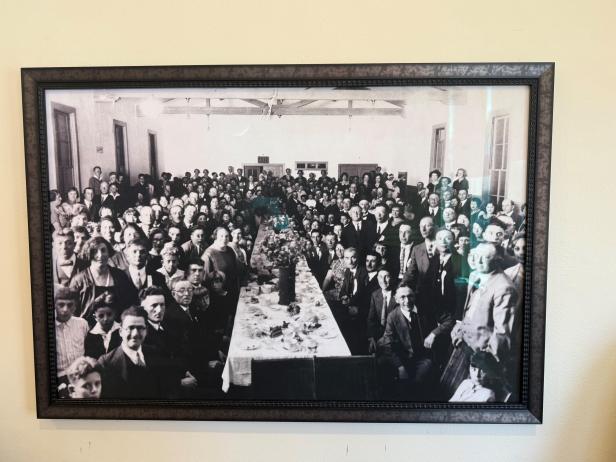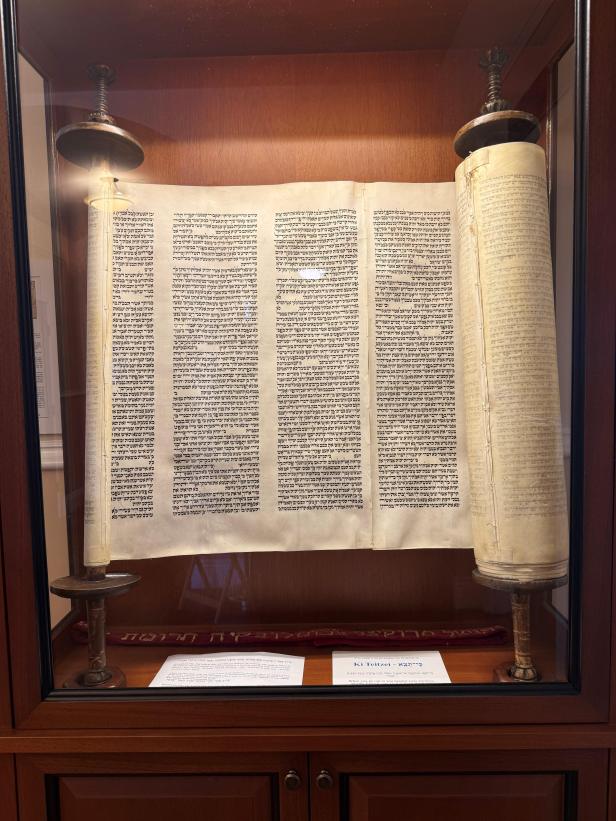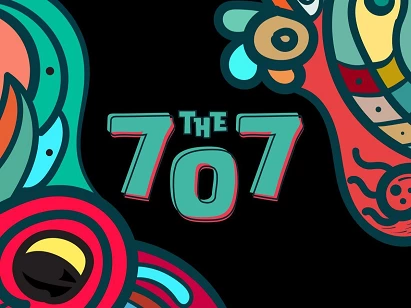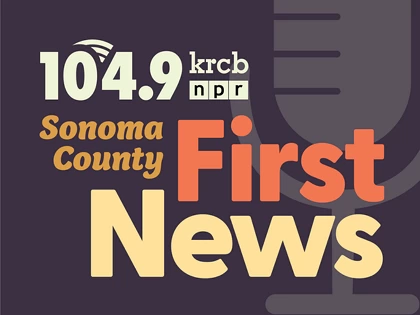 photo credit: Noah Abrams/KRCB
photo credit: Noah Abrams/KRCBThe original membership of B'nai Israel Jewish Center pictured, during the opening in August 1925.
Almost as long as there's been a Petaluma, there's been an active and organized Jewish community in the city.
On August 10th, Petaluma's B'Nai Israel Jewish Center marked 100 years on Petaluma's Western Avenue.
The century mark is for the building itself, but Rabbi Shalom Bochner said Jewish life in Petaluma is about as old as the State of California.
"Yes, so the B'Nai Israel Jewish Center isn't only the oldest Jewish community between San Francisco and Portland," Bochner said. "It has an incredibly unique, one could even say bizarre backstory."
The creation of the Jewish Center was, according to Rabbi Bochner, really a marriage of necessity.
"Because this is literally the merger or the joint effort of two very different groups of people, socialist, atheist, chicken farmers, Jewish chicken farmers who wanted a culture club," Bochner said. "And more traditional even devout Jews who had been meeting on and off in Petaluma since the 1860's."
Bochner said neither camp had the numbers or means to construct a space dedicated entirely to community cultural life or religious practice, so in 1925, they decided to join forces.
"And what's interesting is the way the building was designed, the traditional folks got this prime but small real estate right near the front," Bochner said. "And the socialists took this large community room that we now use for our preschool and other programs. And both had access to a third room which used to be called the club room. It's now called the sovel and club room, which was a kids hang out space."
It's in that club room where a photograph of the B'Nai Israel community, taken at it's founding, is on display. It's there Rabbi Bochner held, side by side but a hundred years apart, a photo the current B'Nai Israel community.
"So this is opening day August 1925, and you can literally see here the chicken farmers and their more religious neighbors and cousins, and this is that same space August 2025," Bochner said. "Both pictures have about 180 people in it, and in some cases, family members standing and sitting exactly where their parents and grandparents were."
The living history, Rabbi Shalom Bochner said, is unlike any other Jewish community he's been a part of.
"I think the most exciting thing that we have is not that opening day photo, [but] is a Torah reading yad or pointer, which dates from 1862, dedicated to this community," Bochner said. "We use it every Saturday morning when we gather for Shabbat. It's a powerful thing to hand that to a 13-year-old kid as they celebrate becoming Bat or Barmitzvah and say, 'This has been in use in this community for 160 years.' And I love thinking about what was Petaluma like in the 1860's?"
"We're probably talking a couple hundred people," Bochner said. "It's not long after the Gold Rush. Less than 10 years after Petaluma even was organized as a village, and yet there were enough Jews to not only gather, but evidently have a Torah scroll and have a yad dedicated to this community."
Another, even older piece of B'nai Israel's living memory - older than Petaluma, California, or the even the US itself - Rabbi Bochner said, is their torah scroll.
"...Our 300-year-old...scroll that survived the Holocaust," Bochner said.
 photo credit: Noah Abrams/KRCB
photo credit: Noah Abrams/KRCBB'Nai Israel Jewish Center's 300 year old Bohemian Torah scroll opened to the day's reading.
"The Nazis were stockpiling Judaica to literally open a museum, the Museum of the Exterminated Race, they were going to call it," Bochner said. "So they kept the synagogues of Prague intact for this museum, stockpiled these scrolls."
"This one was damaged during the war," Bochner said. "The community that it came from no longer exists. There was no reason to send it back to that little village in Bohemia."
Bochner said the scroll doesn't just sit in a case.
"Our teens and our adults literally chant from it once a week, and I only think that helps the scroll in terms of being pliant and moved," Bochner said. "I think it emotionally helps the scroll. I don't want to be too anthropomorphic, but I imagine the scroll is happy knowing that it it didn't just survive. It's now part of a surviving and thriving Jewish community."
Away from the hubbub of preschoolers - some of whose parents were once themselves preschoolers at the Jewish center - Rabbi Shalom Bochner said those next hundred years sit front of mind.
"We really have three main goals in mind...One is to rapidly and significantly increase our programming that we're not just here for our members, but we're here for everybody that lives in this part of the county, Jewish and non-Jewish, who might be interested in Jewish food, Jewish music, Jewish comedians, Jewish movies, Jewish ideas," Bochner said. "Really focus on what does it mean to be a cultural center."

 Live Radio
Live Radio




